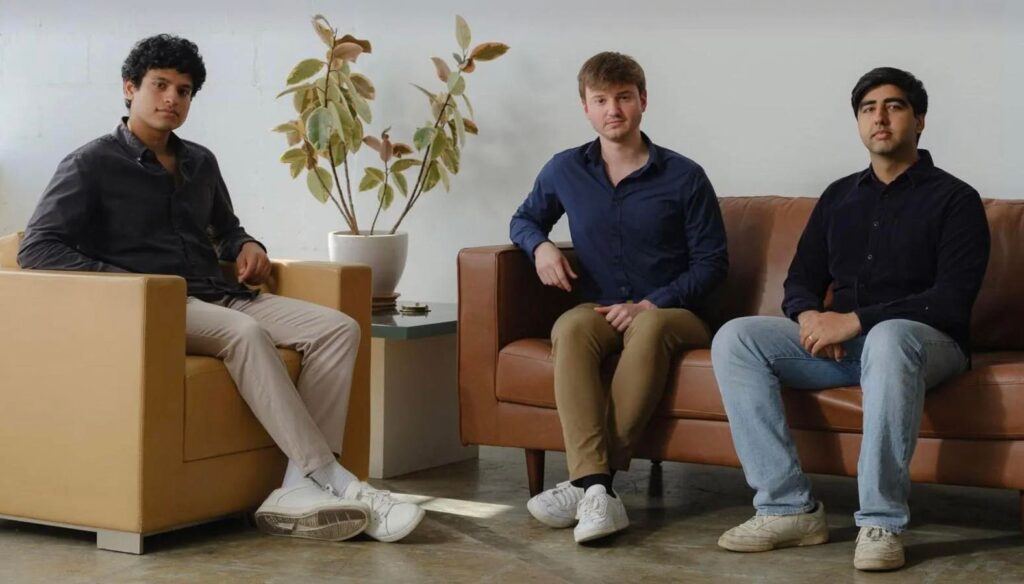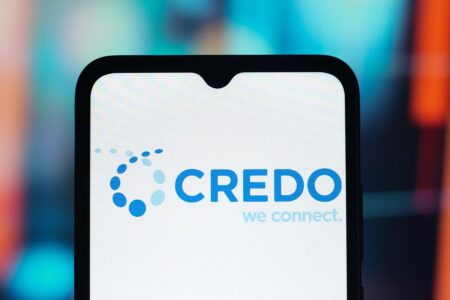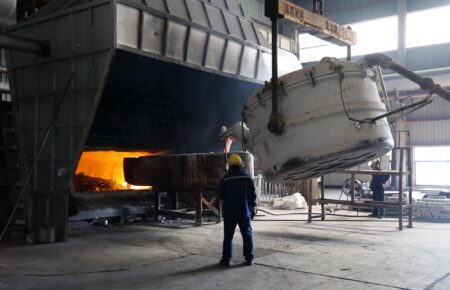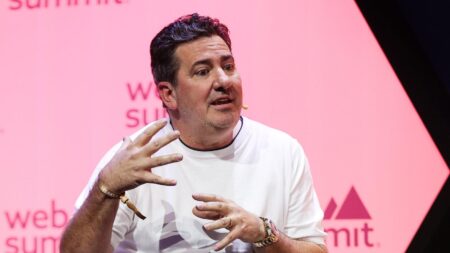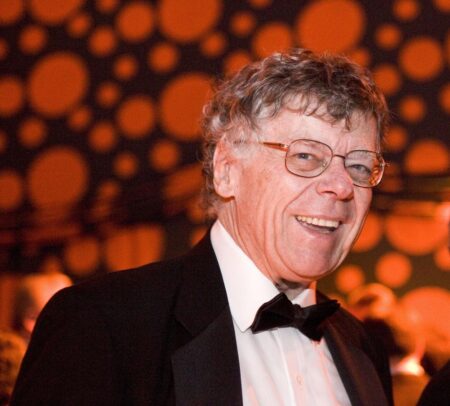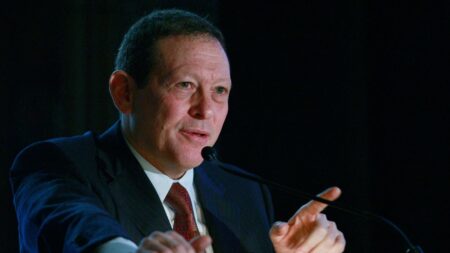Think this is nice? It’s a version of the weekly Under 30 newsletter and would be even better in your inbox.
Brendan Foody, Adarsh Hiremath and Surya Midha had no idea what it was like to be recruited to a job, let alone be an employee, dropped out of college to launch Mercor in 2023. But they had engineering skills and an idea: What if an AI tool could assist companies with recruiting and interviewing new hires? Top tech enterprises receive huge volumes of new applications every day, and in the midst of the AI boom, securing the best talent is crucial. Creating a tool that could screen and virtually interview at least the first batch of applicants could save time and money, the trio thought.
It wasn’t long before Mercor was a hit with top players like OpenAI, Google and Meta. But the founders’ biggest hurdle? Not being of legal age to enter bars where executives wanted to meet and talk shop.
Now two years later, the Under 30 alums are officially the world’s youngest self-made billionaires. Following a $350 million Series C raise announced last week, the startup is now valued at $10 billion, giving each of the 22-year-old tech bros a significant net worth boost.
“It’s definitely crazy,” Foody told Forbes. “It feels very surreal. Obviously beyond our wildest imaginations, insofar as anything that we could have anticipated two years ago.”
When Under 30 editors chatted with Mercor in March of this year, the startup had raised around $135 million from investors like Menlo Park-based Felicis, Benchmark and General Catalyst, which valued it at $2 billion. At the time, the cofounders told Forbes they “never intentionally raised a round” and “haven’t touched almost any of the money.” But when Felicis flies you around in helicopters and takes you on jets to Vegas, the offer is hard to refuse.
Since then, however, Mercor has made somewhat of a pivot. Although the startup was reporting $100 million in revenue with the AI recruiter tool—and argues it’s still the core business—they’ve now ventured into the world of data labelling. Like what Scale AI does (another AI unicorn), Mercor connects skilled contractors with companies to label, evaluate and improve their AI models.
The timing of the pivot was pretty convenient. In June, Meta bought 49% of Scale, Mercor’s now biggest competitor, for some $14 billion, giving players like Mercor a chance to step up while Scale focuses on its relationship with its new parent.
It makes sense that Mercor would want the new capital—and the staggering valuation to get ahead of its competitors. The three cofounders can now boast they’ve toppled Scale’s Alexandr Wang for the title of youngest self-made billionaires, and can even say they joined the nine-digit club earlier than Mark Zuckerberg, who was 23 when he took on the billionaire title.
Read more about what the cofounders plan to do with their estimated fortunes here.
See you next week,
Alex and Zoya
How Loop Earplugs Turned Down The Volume For Gen Z And Dialed Up Massive Revenue
Hearing damage from years of attending loud concerts inspired a quiet idea. Launched in 2016 in Antwerp, Belgium, Maarten Bodewes and Dimitri O’s earplug company now brings in $220 million a year. Read more about the accessory-adjacent noise cancellers here.
On Our Radar
–Rich people want to play ball! New reports show that sports have become a preferred asset class for billionaires. When JPMorgan looked into more than 100 investment portfolios, they found 20% of respondents hold controlling stakes in a team—driven by both emotion (Who doesn’t love a hometown team?) and sports’ growing foothold as a strategic investment opportunity. Lately, investing in stadiums or teams has become more popular than investing in art or cars. (Forbes)
-This week Vogue announced that Teen Vogue would be absorbed into its big sister publication. Vogue claims it’s an effort to “expand” its ecosystem, but so far it’s only made it smaller: Six staffers were laid off—and even E.I.C. Versha Sharma will leave the publication. The internet isn’t happy: One TikToker went as far as to say it’s “an intentional silencing of underrepresented voices.” (Fast Company)
–Is MAGA having a change of heart? Election Day this month showed that Democrats won bigger than even expected. Zohran Mamdani, a self-proclaimed democratic socialist, beat out Andrew Cuomo for New York City Mayor. Abigail Spanberger took the governor’s spot in Virginia and Mikey Sherrill is the governor-elect for New Jersey—both by wide margins. Based on exit polling, some of that margin is thanks to Trump supporters. (The New York Times)
Venture View
Time to take a look inside the world of venture capital.
This week, we sat down with Max Kilberg, a partner at Village Global. He was promoted to partner last month after spending two years as an investor at the practice. Today, Village is a $500 million AUM-firm chaired by Reid Hoffman, specializing in pre-seed and seed stage startups. In February, we spoke with Kilberg about Village’s investment into Lore, a consumer tech platform founded by Under 30 VC lister Zehra Naqvi.
The following responses have been slightly edited for length and clarity.
Let’s start with your entry into investing. When did you first get into this industry? I actually started a company, very cliché… everyone graduates from Stanford and starts a company with buddies. But it was a tremendous learning experience. Ultimately it was not successful, but I learned a couple of things: No. 1 is how hard startups are, how excellent you need to be and how hard you need to work in order to achieve that liftoff. No. 2 was how much I enjoyed being around other founders, learning about what they were building, helping them through whatever challenges. I first angel-invested in a couple of my friends’ startups and eventually took a job at AngelList as an associate. Nine months into that job, I realized I wanted to be a full-time professional VC.
How do you feel like that journey as a founder has helped you as an investor today? It gave me a really solid foundation for knowing what good looks like. I am so consistently humbled now, on the other side of the table, by the founders I meet—even those we pass on. Being a founder has also let me approach the job from a standpoint of empathy, which has helped me win deals and add value in more ways than just financial.
When you are first meeting a founder, what are some of those green flags or indications of what “good looks like,” as you mentioned? I don’t think that there’s one formula, but in general, good founders are exceptional at what they’re exceptional at, and are able to build a team around them to fill in the gaps.
When I’m meeting someone for the first time, I ask questions like: What is the evidence of exceptionalism in their past? How does that translate to what they’re doing right now and want to do with their company? Why does that give them a leg up and a right to win compared to every other smart person with a similar idea?
Starting a company has never been easier, ideas have never been cheaper, so it really comes down to the person and their conviction and reason as to why they are the right person to build their particular company.
How can early founders show you this history of success? What might it look like for someone who is so early stage, pre-revenue, etc.? It can be a history of iteration and building products. It could be a history of focus on some sort of niche subject or industry.
I think when founders show up to a meeting cold, a lot of impressing VCs has to do with that Italian term, “sprezzatura,” which is the ability to make complicated things seem very easy and calculated. So structured thinking and the ability to turn that into a great story is key.
What are some red flags that turn you off a deal? The No. 1 thing I don’t like to see is founders feeling that VCs or investment is what is needed to make them go full-time or bless their idea or tell them that they’re on the right track. VC alone will never make a company or a founder successful. So I love to invest in founders who are already doing the job regardless of whether they have backing.
What does your day-to-day look like now as partner? I’ll be a bit more involved in some fundraising things and will help to hire some more junior folks on our team to beef up our investment processes further. But the funny thing about this is that the job is sort of the same regardless of whether you are an angel investor, a junior VC, a partner at a VC fund, or even someone trying to break into VC. You don’t really need permission to do the job. The job is to find great founders and help them in whatever way you can.
What does the timeline look like from when you first interface with a founder to when a deal is signed, a check is written? It can really vary. There’s been companies that I’ve gotten to know the founders for six months to a year before we invested in them, really building a deep relationship—even helping them start the company, introducing them to potential customers, advisors, or cofounders. In those instances, we hope we’re the first call when they decide to raise down the line.
On the flip side, I’ve witnessed us make tremendous investment decisions in a very short period of time—sometimes in less than a day.
What’s your best piece of advice for a founder right now who’s just embarking on this funding journey? What are the first steps they should take? I would advise founders to get really specific about exactly what they want to achieve with the money they hope to raise, and work backward from there. Then it comes down to getting a meeting with investors who share that vision and convincing them to come along with you. Obviously warm intros are always more effective than cold outreach, but we’ve invested into companies that we’ve done cold outreach to, and we’ve invested in companies that have cold outreached to us.
In terms of that cold outreach, what nails the pitch? There’s a ton of value in a very well written cold email. And it doesn’t need to be that long. Personalize it, make it short, make it specific, have a very clear ask and demonstrate value.
For Village, for example, part of our outreach to founders is telling them we’re one of the better networks in tech, and we have all these luminary LPs who are tremendous founders in their own right from the previous generation. With that, we encourage founders to come be a part of our amazing network. You can tweak that on the founder’s side: Demonstrate your value. And then once you have a meeting, it’s your show.
Read the full article here







